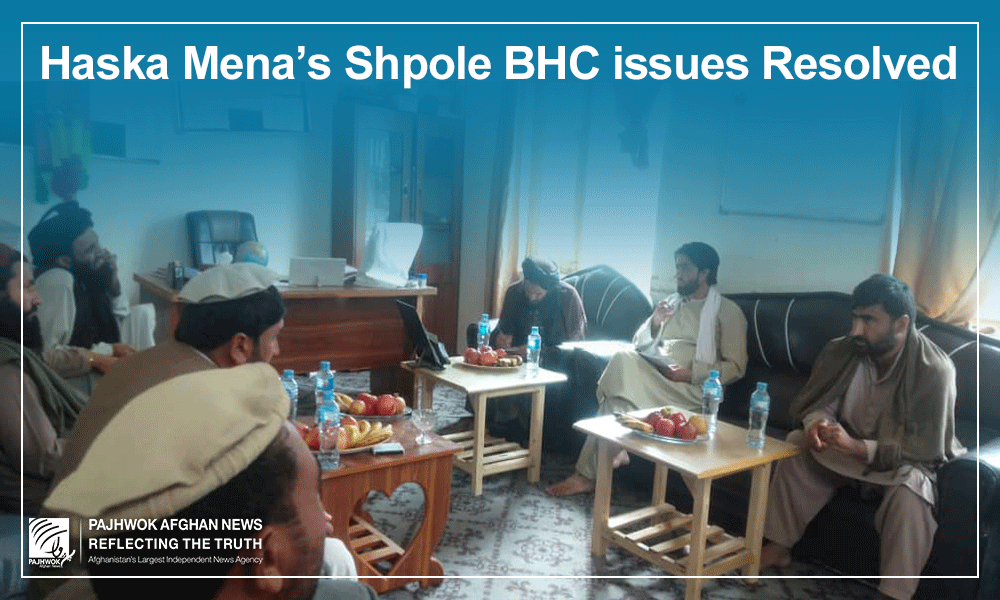JALALABAD (Pajhwok): The Haska Mena Basic Health Centre (BHC)’s three major issues — lack of healthy water, lack of medicine and damaged bathrooms — have been addressed after they were identified during Community Based Monitoring.
Haska Mena is one of the populated districts of Nangarhar province located on Durand Line where in total four (4) health clinics are operating for approximately 120,000 population.
The Shpole Basic Health Clinic (BHC) is operating for 20,000 population in the area where every day 150-200 patients visit this clinic. Most of the patients coming from very far away are over age men, women and children.
The major issues, identified during the Community Based Monitoring, were lack of medicine, lack of healthy water, and damaged bathrooms.
Mr. Mohammad Jan, a resident of Haska Mena district and one of the clients of Shpole BHC, shared his story with the member of the District Social Accountability Network established by HAEO under the Anti-Corruption Grants Program of UNDP.
“My three-year-old son was sick and I brought him to the Shpole BHC for medical checkup and treatment, when I met with the doctor, he said that there is no medicine for this child. I had no enough money to take my son to the central hospital or go to a private clinic,” said Mr. Mohammad Jan.”
The above issue has been shared with the provincial and district health sector officials through sector meetings and TV dialogues by the HAEO advocacy team and the District Social Accountability Network established by HAEO under the Anti-Corruption Grants Program of UNDP supported by the Royal Danish Embassy.
As a result of the regular social monitoring of health facilities and sharing issues with health officials, the above mentioned issues have been resolved.
The medicine has been supplied to the clinic, the bathrooms have been repaired and made able for usage and the well has been repaired for providing healthy water. The clients and clinic personal are now happy and thanked HAEO and UNDP for their efforts and commitment to community development free of corruption society.
“If everyone voluntarily and based on access to information law monitored the work of service providers and public services delivered in their respected communities, the issues, and corruption level will apparently be reduced, said Mr. Tawab Khan, member of the Social Accountability Network.”
nh/ma








GET IN TOUCH
NEWSLETTER
SUGGEST A STORY
PAJHWOK MOBILE APP